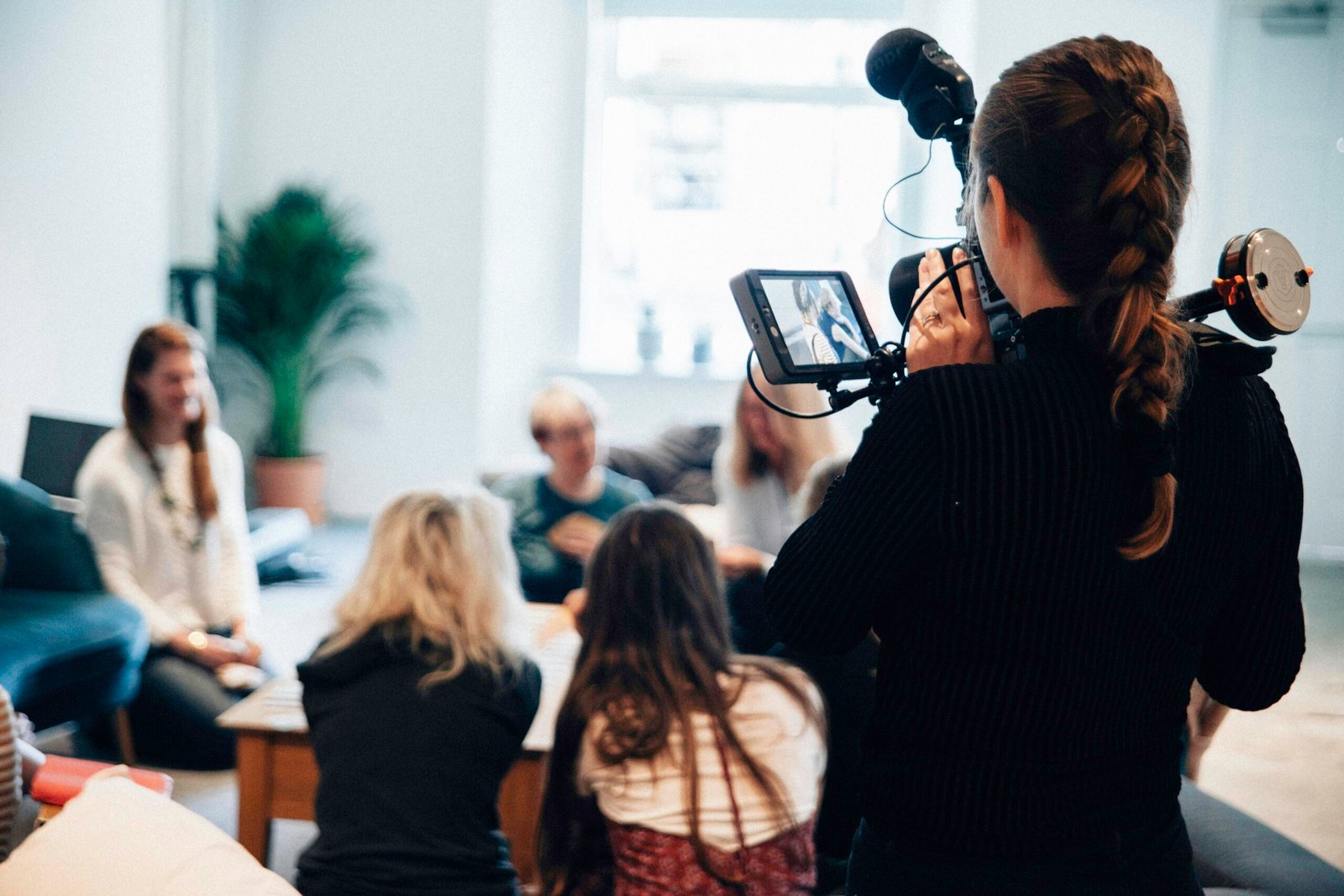Communication skills are essential in most jobs, as they involve interacting with customers, clients, and colleagues. During job interviews, communication skills are closely evaluated through competency-based or behavioral interview questions. This article provides a comprehensive list of communication skills interview questions that require specific examples demonstrating communication abilities in the workplace. These questions explore how candidates have simplified complex issues, handled miscommunications, adapted communication styles, and responded to feedback and challenges. Additionally, the article offers insight into strengths and weaknesses in communication and provides tips for demonstrating good communication skills during an interview.

List of Communication Skills Interview Questions
Communication skills are crucial in many job roles, and employers often evaluate a candidate’s ability to communicate effectively in interviews. Here is a comprehensive list of communication skills interview questions that you should be prepared to answer:
How have you simplified a complex issue in order to gain understanding from a customer or colleague?
In this question, the interviewer wants to assess your ability to break down complex information and make it easily understandable for others. Think of a specific example from your past work experiences where you had to simplify a complex issue, explain it to someone, and ensure they understood it. Discuss the steps you took to simplify the information and the outcome of your efforts.
Tell me about a tough conversation you had to have with a team member.
This question aims to evaluate your conflict resolution and communication skills. Draw on a situation where you had to address a challenging issue with a team member, such as poor performance or behavior. Describe how you approached the conversation, the steps you took to address the issue, and the outcome of the conversation.
Give me an example of when you had to use your persuasiveness at work.
Employers want to know if you can effectively persuade others to adopt your ideas or viewpoints. Think of a situation where you had to convince others to support your idea or change their stance on a particular issue. Discuss the specific persuasiveness techniques you used and the outcome of your efforts.
Tell me about a time there was a miscommunication at work. How did you handle it?
Miscommunication can lead to misunderstandings and mistakes. In this question, provide an example of a miscommunication that occurred in your past work experiences. Explain how you identified the miscommunication, the steps you took to address it, and the measures you implemented to prevent future miscommunications.
Describe a time you had to ask questions and listen carefully to clarify the exact nature of a customer’s/colleague’s concern.
Active listening and effective questioning are key communication skills. Think of a specific situation where you had to listen attentively and ask probing questions to fully understand a customer’s or colleague’s concern. Discuss the actions you took to clarify their concern and how you resolved the issue.
Tell me about a time you had to adjust your communication style to adapt to a person from a different background or culture.
This question assesses your ability to adapt your communication style to diverse audiences. Share an experience where you encountered someone from a different background or culture and explain how you adjusted your communication style to ensure effective communication. Discuss the positive outcome of your efforts.
Describe a time when you had to express your ideas in a meeting.
Effective communication in meetings is crucial. Provide an example where you had to express your ideas in a meeting setting. Explain how you prepared for the meeting, how you presented your ideas, and the results/outcome of the meeting.
How have you responded to negative feedback?
Receiving and responding to negative feedback is an opportunity for growth. Share an example of a time when you received negative feedback and explain how you responded to it. Discuss the actions you took to address the feedback and any steps you took to improve your communication skills based on the feedback received.
Tell me about a time you received unclear instructions from your supervisor. What did you do?
Unclear instructions can lead to confusion and errors. Describe a situation where you received unclear instructions from your supervisor and explain how you handled it. Discuss the steps you took to clarify the instructions and ensure that you understood them correctly.
Tell me about a time you had to talk to an angry customer. What steps did you take?
Dealing with angry customers requires strong communication skills. Share an experience where you had to handle an angry customer and explain the steps you took to address their concerns and resolve the issue. Discuss the outcome of the situation and how you maintained professionalism throughout the interaction.
Tell me about a time that other members of the team disagreed with your idea. How did you respond?
Working in a team often involves managing differing opinions. Describe a situation where your team members disagreed with your idea and explain how you responded. Discuss how you handled the disagreement, whether you sought compromise or alternative solutions, and the ultimate outcome.
What challenges have you faced in communicating with your manager? How have you handled these?
Open communication with your manager is essential. Reflect on any challenges or difficulties you have faced in effectively communicating with your manager. Describe the actions you took to address these challenges and how you ensured effective communication with your manager moving forward.
Tell me about a time when you had to adapt your communication style.
Effective communicators can adapt their style to suit different audiences. Share an experience where you had to adapt your communication style to accommodate a specific situation or individual. Explain why you needed to adapt your style and the positive impact it had on the communication.
What are your strengths and weaknesses in communication?
Employers often want to gauge your self-awareness in terms of communication. Discuss your strengths in communication, such as being able to speak confidently, provide and receive feedback constructively, and select the right communication style for each listener. Additionally, mention any areas where you may need improvement, such as being overly hesitant or providing too much information at once.
Communication Strengths
Here are some examples of communication strengths that you can discuss during your interview:
Able to speak with confidence in a clear and audible voice
Confidence in speaking is crucial for effective communication. Discuss your ability to speak with confidence, using a clear and audible voice that allows others to understand you easily.
Able to express ideas and information clearly and in a way that is easily understood by your audience
Being able to convey your ideas and information clearly is a valuable communication skill. Explain how you prioritize clarity in your communication, ensuring that your audience understands your message.
Able to provide and receive feedback in a constructive manner
Effective communication involves giving and receiving feedback in a constructive way. Discuss your ability to provide feedback that is helpful and respectful, as well as your openness to receiving feedback and using it to improve.
Able to select the right communication style for each individual listener
Adapting your communication style to different individuals is essential. Share examples of how you have successfully adjusted your communication style to suit different listeners’ preferences and needs.
Having adequate and correct information to support your message
Having accurate and relevant information is crucial for effective communication. Explain how you ensure that you have the necessary information before conveying your message, and provide examples of times when you successfully supported your ideas with appropriate information.
Able to simplify complex information where necessary
Simplifying complex information can make it easier for others to understand. Discuss situations where you have successfully simplified complex information to ensure comprehension.
Displaying appropriate body language that reinforces the message you are trying to get across
Body language plays a significant role in communication. Explain how you use appropriate body language, such as maintaining eye contact, using gestures, and maintaining good posture, to reinforce your message.
Able to persuade others to a desired outcome
Persuasion skills are important in many work situations. Share examples of how you have successfully persuaded others to support a particular idea or take a desired action.
Able to negotiate to achieve a desired outcome
Negotiation skills are valuable for resolving conflicts and reaching mutually beneficial agreements. Discuss your ability to negotiate effectively, providing examples of successful negotiations.
Able to listen actively and ask appropriate questions to gain clarity
Active listening and asking thoughtful questions are key communication skills. Explain how you actively listen and ask relevant questions to ensure you fully understand others’ perspectives and needs.
Able to efficiently process and analyze large quantities of information
Efficiently processing and analyzing information is important for effective communication. Describe your ability to handle large amounts of information and distill it down to key points that are easily understood.
Able to see the other person’s point of view
Being able to understand and respect others’ perspectives is essential for effective communication. Discuss how you actively try to see things from the other person’s point of view, and provide examples of times when you successfully did so.
Shows respect for others’ contribution
Respecting others’ contributions is important for fostering positive communication. Explain how you value and acknowledge others’ input in discussions and decision-making processes.
Communication Weaknesses
It’s important to be aware of your communication weaknesses and demonstrate a willingness to improve. Here are some examples of communication weaknesses that you can discuss during your interview:
Lack of confidence impacts negatively on your communication and compromises the message you are trying to get across
Confidence is vital for effective communication. If you struggle with confidence, acknowledge it and discuss steps you have taken or plan to take to address this weakness.
Cultural barriers prevent a clear understanding of each other
Working in diverse environments requires an understanding of different cultures. If you have experienced challenges in communicating with individuals from different cultural backgrounds, discuss how you are actively working to overcome cultural barriers and promote understanding.
Anxious about expressing your own opinions or disagreeing with others
Openly expressing your opinions and disagreeing with others is important for effective communication. If you tend to feel anxious in these situations, explain how you are working to overcome this anxiety and actively contribute to discussions.
Using hesitations and excessive use of conversation fillers such as “you know,” “like,” “um”
Using hesitations and conversation fillers can distract from your message. Acknowledge this weakness and discuss steps you are taking to improve your speech patterns and reduce the use of fillers.
Bombarding with too much information at one time
Providing too much information at once can overwhelm your audience and hinder effective communication. If you tend to do this, explain how you are working on condensing and organizing information to make it more digestible for others.
Providing inadequate or incorrect information
Providing inaccurate or incomplete information can lead to misunderstandings. Acknowledge this weakness and discuss efforts you have made (or are making) to improve your accuracy and ensure you have the necessary information before communicating.
Not listening with your full attention and easily distracted
Active listening is crucial for effective communication. If you struggle with distractions and not fully paying attention, discuss steps you are taking to improve your listening skills, such as practicing active listening techniques and minimizing distractions.
Not asking questions to clarify or confirm that the right message has been received
Asking thoughtful questions to ensure understanding is an important communication skill. If you tend to avoid asking questions, discuss how you are actively working to overcome this and actively seeking clarification when needed.
Not sensitive to body language or unable to correctly read nonverbal cues
Body language and nonverbal cues play a significant role in communication. If you struggle with observing and interpreting these cues, acknowledge this weakness and discuss steps you are taking to improve your sensitivity to body language.
Not adapting communication style to the listener or audience
Adapting your communication style to suit your audience is crucial for effective communication. If you tend to struggle with this, discuss efforts you are making to be more mindful of your audience and adjust your style accordingly.
Not understanding the context of the conversation
Understanding the context of a conversation is important for effective communication. If you tend to struggle with grasping the context, discuss steps you are taking to improve your contextual awareness and actively seek clarification when necessary.
How to Demonstrate Good Communication Skills During the Interview
During the interview, it’s vital to showcase your strong communication skills. Here are some tips for demonstrating good communication skills during your interview:
Make sure the interviewer has finished the question before answering
Active listening is crucial for effective communication. Wait for the interviewer to finish their question before responding to show that you are attentive and respect their input.
Take a pause to think about the question before answering
Pausing before responding to a question allows you to gather your thoughts and structure your answer. Taking a moment shows that you are thoughtful and considerate in your communication.
Ensure you receive the right message by asking appropriate questions and clarifying what is wanted
Avoid assumptions by asking clarifying questions to ensure you understand the question fully. This demonstrates your commitment to effective communication and your desire to provide the information the interviewer is seeking.
Adapt your approach to the style of the interviewer
Pay attention to the interviewer’s communication style and adapt your responses accordingly. If they are direct and to the point, mirror that style. If they prefer a more conversational approach, adjust your tone accordingly.
Express yourself clearly, concisely, and confidently
Demonstrating clear and concise communication is essential in an interview. Structure your responses in a logical manner, providing relevant details while avoiding unnecessary information.
Use appropriate language – be aware of your grammar and vocabulary
Employers value candidates who communicate effectively with correct grammar and appropriate vocabulary. Be conscious of your language choices and ensure you are using proper grammar.
Avoid meaningless conversation fillers like “um” and “you know”
Fillers can distract from your message and undermine your communication skills. Try to minimize or eliminate fillers like “um” and “you know” from your speech.
Be conscious of your delivery – the rate at which you speak and the volume
Speaking at an appropriate rate and volume is important for effective communication. Avoid speaking too quickly or softly, as this can hinder comprehension. Practice speaking at a moderate pace and with enough volume to be easily heard.
Be aware of your body language – maintain good eye contact, insert smiles where appropriate, check your posture, and avoid fidgeting
Nonverbal communication is just as important as verbal communication. Maintain good eye contact with the interviewer, display appropriate facial expressions, sit up straight, and avoid fidgeting. These nonverbal cues demonstrate confidence and engagement.
Engage the interviewer throughout by asking smart questions
Asking thoughtful questions throughout the interview shows your interest and engagement. Prepare some intelligent questions beforehand and ask them at appropriate points during the interview. This demonstrates your active participation in the conversation.

Written Communication Skills Interview Questions
In addition to verbal communication, written communication skills are also important in many job roles. Here are some common written communication skills interview questions:
What kinds of writing have you done in your job? Can you give me an example?
The interviewer wants to evaluate your experience with various types of written communication. Provide examples of the types of writing you have done in your past job, such as reports, emails, memos, or project proposals. Discuss a specific example to showcase your abilities.
Have you ever written instructions for other people? How did you go about this?
The ability to write clear and concise instructions is valuable in many positions. Share an example of a time when you had to write instructions for others, such as a standard operating procedure or a user manual. Explain how you approached the task and ensured that the instructions were easy to understand and follow.
Tell me about a response you wrote to a customer complaint.
Customer complaints require professional and empathetic written responses. Share an example of a customer complaint you had to respond to and describe how you crafted a well-written and satisfactory response. Explain how you addressed the customer’s concerns and provided a resolution.
Describe a time when you had to use your written communication skills to get an important point across.
Effective written communication can help convey important information clearly. Share an example of a situation where you had to use your written communication skills to emphasize an important point. Describe the steps you took to ensure that the message was effectively communicated and understood.
How to Create Rapport in your Job Interview
Creating rapport is essential during a job interview as it helps foster a positive connection with the interviewer. Here are some tips to create rapport:
Confidence is critical to good interview communication
Confidence in your abilities and self-presentation is crucial in creating a positive impression. Practice interview questions beforehand, dress appropriately, and enter the interview with a positive mindset to exude confidence.
Preparation is key to confidence
Thoroughly research the company, the role you are applying for, and common interview questions. Prepare thoughtful and relevant answers to demonstrate your knowledge and interest. This preparation will help you feel more confident and prepared during the interview.
By following these tips and demonstrating your communication skills effectively, you will increase your chances of impressing the interviewer and securing the job. Remember to be authentic and genuine in your responses while showcasing your strengths and addressing any weaknesses in a positive light. Good luck!















